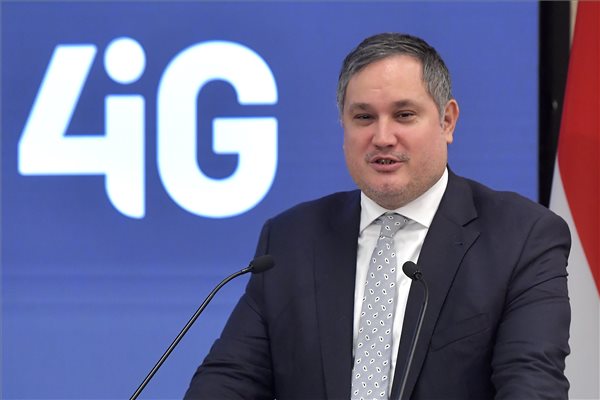
Márton Nagy is optimistic about the new year, stressing that inflation has been brought down to single digits.Continue reading
The Minister of National Economy Márton Nagy gave a presentation at the AmCham (American Chambers of Commerce) Business Forum for business leaders, presented the state of the country’s economy, and praised Hungarian-American economic relations.
The minister stressed that U.S.-Hungarian economic relations have developed steadily in recent years, and that there is a partnership and smooth cooperation. The United States is one of Hungary’s largest partners in trade in goods, the second most important player in foreign trade in services, and Hungary’s third largest investor, with around 10 percent of the country’s FDI (foreign direct investment) stock of around EUR 100 billion being tied to the U.S.
Furthermore, with major U.S. companies such as General Electric, Coca-Cola, Flextronics, Jabil Circuit, and Morgan Stanley providing the livelihoods of more than 21,000 families,
the role of U.S. companies in the Hungarian economy and its performance is outstanding.

Márton Nagy. Photo via MTI/Soós Lajos
The minister noted that 2023 was a difficult year for everyone. The effects of the war and sanctions negatively impacted economic performance, while the government struggled to save jobs and businesses through the Factory Rescue Program, the Gábor Baross Reindustrialization Loan Program, the Széchenyi Card Program (subsidized loan designed to solve the temporary liquidity problems), and support for energy-intensive companies. These efforts have been successful, with the government bringing inflation down to 5.5 percent, a turnaround in real wages and a return to growth.
Márton Nagy underlined that the government’s aim is to restore growth in 2024, so that the GDP can return to dynamic growth. Restoring growth rests on three pillars. The first is to restore household consumption. This will be helped by the increase in the minimum wage and the guaranteed minimum wage, as well as by wage increases in the public sector, such as for teachers, soldiers, health workers, and even law enforcement officers.
Second, domestic production and investment must be restored: the government aims to keep investment above 25 percent. This will also be helped by the voluntary action of banks to reduce the interest rate spread above BUBOR (Budapest Interbank Offered Rate) on business loans to zero percent from February 1, which in practice means a two to four percentage point cut in lending rates.
The third step is to further increase labor market activity by mobilizing the Hungarian labor market reserve of 300,000, in order to raise the activity rate in the 15-64 age group from the current 78 to 85 percent.
In this context, the politician reiterated that strengthening economic growth and fiscal balance “go hand in hand,” with rising output and consumption generating extra fiscal revenues. The outlook for the Hungarian economy is favorable: inflation is falling, real wages are rising, employment is increasing, and consumer confidence has returned to pre-war levels.
Finally, Nagy asked the representatives of U.S. companies to reinvest as much of their profits in Hungary as possible, as the country is a good investment destination.
Via MTI; Featured image via Facebook/Coca-Cola HBC Careers